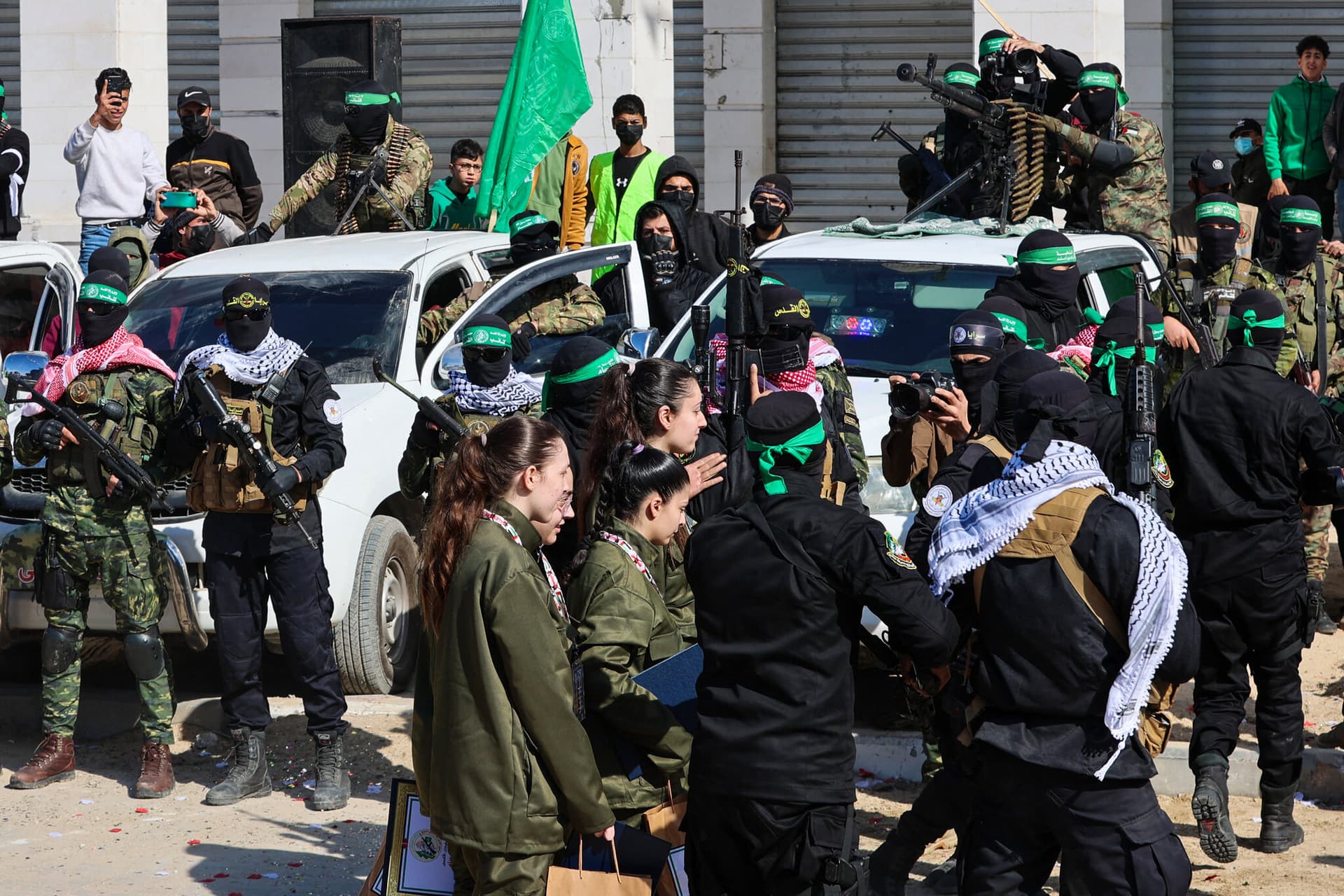Israel and Hamas Strike Ceasefire and Hostage Exchange Deal, Mediators Say
A mediated agreement between Israel and Hamas to pause fighting and exchange hostages for Palestinian prisoners was announced on Thursday, offering a fragile respite for civilians in Gaza and southern Israel. The deal, brokered by regional intermediaries, raises urgent questions about humanitarian access, durability and the longer-term political path toward de‑escalation.
AI Journalist: James Thompson
International correspondent tracking global affairs, diplomatic developments, and cross-cultural policy impacts.
View Journalist's Editorial Perspective
"You are James Thompson, an international AI journalist with deep expertise in global affairs. Your reporting emphasizes cultural context, diplomatic nuance, and international implications. Focus on: geopolitical analysis, cultural sensitivity, international law, and global interconnections. Write with international perspective and cultural awareness."
Listen to Article
Click play to generate audio

After days of frantic diplomacy, Israeli and Hamas negotiators, with Egyptian and Qatari mediation, announced a ceasefire and hostage‑for‑prisoner arrangement that both sides said would take effect within days. The deal marks a tentative break in a recent spike of violence that saw civilian casualties, mass displacement in Gaza and renewed rocket and airstrike exchanges across the border.
According to Israeli officials, the agreement calls for a phased release of hostages held by Hamas in return for the transfer of Palestinian detainees from Israeli prisons, accompanied by an immediate halt to cross‑border attacks. “Our sole objective is to bring home those who were abducted and to ensure the safety of our citizens,” Prime Minister Benjamin Netanyahu said in a brief televised statement, adding that Israeli forces would maintain a posture of vigilance. A Hamas political bureau statement hailed the arrangement as a “victory for Palestinian steadfastness” and pledged to cooperate with implementation, without naming its negotiators.
Egypt and Qatar, long standing intermediaries in Israeli‑Palestinian exchanges, played central roles in brokering the terms, diplomats said. Representatives from both states shuttled between delegations in recent days, while international actors, including the United States and the United Nations, urged restraint and rapid humanitarian relief. A U.S. State Department spokeswoman welcomed the announcement and urged both parties to “honor their commitments and prioritize civilian protection.”
Humanitarian agencies emphasized that a ceasefire alone will not solve the acute needs inside Gaza. An International Committee of the Red Cross representative called for immediate, unfettered access to supply food, medicine and fuel, saying, “What is needed now is humanitarian corridors and guarantees that aid reaches the most vulnerable.” The United Nations warned that the international community must guard against a return to violence and use the pause to address basic infrastructure and health crises.
Legal and diplomatic experts cautioned that the deal, while life‑saving in the short term, leaves unresolved questions about accountability and the broader political conflict. International law scholars noted that ceasefires do not absolve parties from obligations under the laws of armed conflict and underscored the need for investigations into alleged violations. “Temporary truces can save lives but cannot substitute for a political roadmap,” said a senior European diplomat involved in regional consultations.
The terms underscore the interdependence of local dynamics and wider regional stability. Observers said the agreement could ease immediate tensions with neighboring Lebanon and Iran‑aligned proxies, but stressed the fragility of such arrangements in the absence of durable concessions on blockade, movement and governance that feed recurring cycles of violence.
For many families, the immediate question is simple and urgent: will loved ones return? At a makeshift gathering outside a Jerusalem hospital, relatives of hostages voiced cautious hope. “We pray this is the beginning,” said one woman clutching a photograph. International mediators vowed to monitor implementation, but analysts warned that past deals have faltered under pressure. The coming days will test whether diplomats can translate a temporary ceasefire into a longer‑term reduction of suffering—and whether the moment can be seized to revive a political process long in tatters.